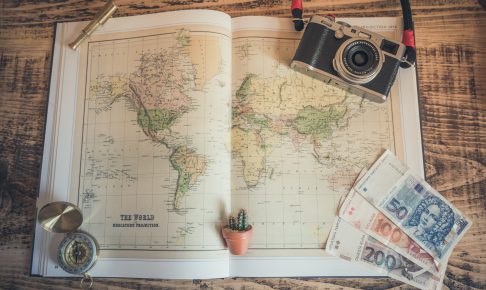目次-Contents-
New consumption tax system starts
In Japan, a new rule for consumption tax(消費税)will be introduced on October 1, 2023.
That is what is called the “INVOICE System(インボイス制度)”.
Calculating the consumption tax amount will drastically change.
And not only that, entities who are consumption tax-exempt may have to pay their consumption tax when the system starts.
That means an actual tax hike.
Today, let me explain the outline of consumption tax and the Invoice system in Japan.
Current system of consumption tax
Consumption tax is the tax imposed on goods and services consumed.
A consumer is the person who pays the tax.
But it takes so much time for consumers to pay the tax to the tax office every time they consume goods and services.
To avoid this, entities add consumption tax on their goods and services and they pay the tax every certain period of time.
That means entities are not the one who pay the tax, consumers are.
How much consumption tax should entities pay to the tax office?
Items are produced by a manufacturer, handed to a wholesaler, shipped to a retailer, and finally bought by a consumer.
If the government imposed the tax on all the transactions (manufacturers to wholesalers, wholesalers to retailers, and retailers to consumers), a single product is taxed multiple times.
In order to avoid this, entities pay to the tax office the amount of consumption tax deposited on sales, less consumption tax paid on purchases, etc.
Consumption tax deposited on sales, less consumption tax paid on purchases, etc.
Let’s say a manufacturer sells an item for 100 yen to a wholesaler, then the wholesaler sells the item for 150 yen to a retailer, and finally the retailer sells it to a consumer for 200 yen.
A consumer pays 20 yen consumption tax (taxed at 10%) in addition to the 200 yen base price to the retailer.
The retailer gets the 20 yen consumption tax, but the tax that the retailer has to pay to the tax office is only 5 yen (A).
Because they deduct the 15 yen consumption tax paid to the wholesaler.
In the same way, the wholesaler gets 15 yen consumption tax from the retailer while they pay 10 yen tax to the manufacturer.
So the consumption tax the wholesaler pays to the tax office is 5 yen (15 minus 10) (B).
Finally, the manufacturer gets 10 yen consumption tax from the wholesaler (C).
They need to pay it to the tax office.
In this way, each entity pays its consumption tax and amount to 20 yen (A+B+C).
That’s exactly the same amount as the consumer pays to the retailer.
Consumption tax-exempt entities(免税事業者)
Simplified taxation system(簡易課税制度)
For the details of those topics, please see my previous blog below.
What is “Invoice system”?
The “Invoice system (適格請求書等保存方式) ” will start in October 2023.
We have introduced that the consumption tax is calculated by deducting the consumption tax paid from the consumption tax received.
Normally, consumption tax must be paid to the government.
However, as we have seen, tax-exempt businesses do not have to pay the consumption tax to the government.
They keep it in their pockets. It is not illegal. This is called “profit tax(益税)”.
As the consumption tax rises from 3% to 5% to 10%, there are actually people who benefit from it.
The invoice system may be a sign of the attitude of not letting this profit tax.
I know I keep repeating myself, but consumption tax is calculated by deducting the consumption tax paid from the consumption tax received.
The reason why you can deduct the consumption tax paid is because the recipient is considered to have paid the consumption tax to the government.
If the recipient is a tax-exempt business, the company or person does not pay the tax to the government.
However, until now, it has been allowed to deduct that amount from the consumption tax due.
However, from October 2023, only consumption tax paid to a “Qualified invoice issuer(適格請求書発行事業者)” will be allowed to be deducted from the consumption tax due.
Qualified invoice issuer(適格請求書発行事業者)
A business that has submitted an “Application for Registration as a Qualified Invoice Issuing Business” to the tax office and has been registered.
To be eligible for this registration, the business must be a taxable enterprise.
Even if you are not a Qualified Invoice issuer, it is not illegal to continue to charge consumption tax to your customers and receive profit tax as before.
However, if you pay consumption tax to someone who is not a qualified Invoice issuer, that person will NOT be able to deduct that amount from the consumption tax deposited.
Ex)
- Sales:1000 yen
- Purchases from persons who are not Qualified Invoice Issuer:400 yen
Consumption tax deposited:10% of Sales = 100 yen
Consumption tax paid:10% of Purchase = 40 yen
Consumption tax to be paid to Tax office:100 yen-40 yen=60 yen ⇒100 yen
The total burden is 140 yen.
You will have to pay 40 yen more in consumption tax than before.
If you remain a tax-exempt business, you may lose orders
As shown in the example above, you cannot deduct consumption tax on purchases made from non-tax-exempt businesses or businesses that doesn’t issue qualified invoices.
You will have to pay consumption tax twice (both to the government and to the supplier).
What would normally happen in such a case?
You would probably reduce (or eliminate) purchases from people who are not qualified invoice issuers.
That’s because you’ll be paying double consumption tax.
You might want to remain a tax-exempt business to keep getting the 10% additional sales.
But if you lose the transaction, there is nothing you can do.
After the invoice system starts in October 2023, the number of tax exempt businesses registering as taxable businesses is expected to increase significantly.
What is an “Invoice”?
An invoice is a bill issued to the client which shows your registered number(登録番号).
From October 2023, you could only deduct the consumption tax from your consumption tax to be paid to the tax office only if you have an invoice on which the registered number is written.
So if you want to have your own registered number, you should submit a document named “適格請求書発行事業者の登録申請書”.
Having any concerns like these with your accountant?
Your tax accountant…
- changes every year
- suggests no tax-saving measures
- doesn’t give you financial statements in a timely manner
- doesn’t explain the contents of the statements
- is reluctant to use the cloud software
- rarely shows up to your office
- is always late to answer your questions
- is elderly and you’re worried about the near future
Lack of communication with tax accountants can cause incorrect accounting processing due to the mess of the contents of the bookkeeping.
As a result, it increases the risk of additional taxation of up to 40% through a tax audit which is conducted once every 3 to 5 years.
To prevent paying additional taxes, it is important to share accounting processing and the business environment with tax accountants on a daily basis and to take measures to address additional taxation risks at an early stage.
We, Masa Tax Consulting, not only consult on accounting contents but also provide tax audit preparation measures and proposals for tax-saving measures that are optimal for customers as the most casual/friendly tax accountant in Japan.
We now offer a free initial consultation and a first-month-free policy.
We do not force you to make any contract, so please feel free to contact us.
~The representative tax accountant will always respond responsibly.~
















